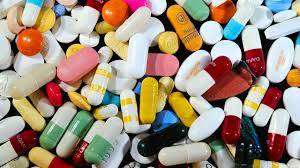The Food and Drugs Authority (FDA) of Ghana is warning citizens about the dangers of fake and substandard medicines currently flooding the market. These counterfeit drugs pose serious risks to people's health and wellbeing, potentially causing adverse reactions or even death in some cases.
FDA Communication Officer Jude Okai notes that they have observed an influx of falsified and poor quality medications recently. He urges the public to be vigilant when purchasing medicines and check for key indicators that a drug is genuine and safe. Okai states, "We have realised as a regulatory body that there has been an influx of substandard and falsified medications on the market, so there is the need for the public to look out for certain things to make sure that whatever medication they go to buy is safe for use."
Some things to look for include checking the expiry date, verifying that the medication has FDA certification and approval, and ensuring the packaging and labeling appear authentic. However, many Ghanaians do not pay enough attention to these details when buying drugs. This has led to the proliferation of fake and substandard medicines currently circulating.
Taking falsified or poor quality medicines can have serious health consequences, according to FDA officials. Information Officer Linda Eyram Mensah warns that counterfeit drugs can cause significant harm to a patient's health and wellbeing. FDA has launched a new "Med Safety App" to enable the public to report adverse reactions to medicines. The app also provides information about prescribed medications to help people make more informed choices.
Upper East Regional Principal Regulatory Officer Abel Ndego notes that FDA, with support from security agencies, has arrested and prosecuted some offenders dealing in fake drugs. However, due to the porous borders in the region, unapproved medicines still enter Ghana illegally. Ndego urges citizens to be vigilant and report any suspicious activity. He says FDA officers have been stationed at legitimate border crossings to inspect all food and drug imports to ensure they meet regulatory standards.
Okai warns dealers of counterfeit medicines to cease their illegal operations. He says FDA will step up surveillance efforts and take legal action against offenders. Linda Eyram Mensah emphasizes that consuming falsified medicines can have serious health consequences for patients. She advises the public to only purchase medicines from certified sellers approved by FDA.
In summary, the proliferation of fake and substandard medicines on the Ghanaian market poses a major public health risk. Citizens must be aware of the tell-tale signs of counterfeit drugs and report any suspicious activity. FDA is working to improve surveillance and enforcement but needs public cooperation to effectively combat this issue. Vigilance and education are key tools in protecting people's health from the dangers of falsified medicines.




No comments yet
Be the first to share your thoughts!